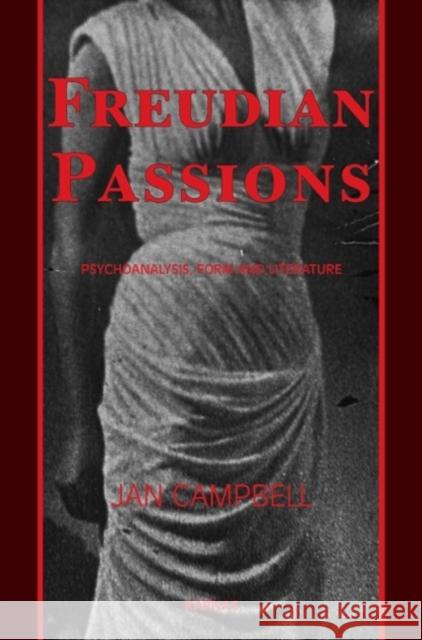Freudian Passions : Psychoanalysis, Form and Literature » książka
Freudian Passions : Psychoanalysis, Form and Literature
ISBN-13: 9781855756168 / Angielski / Miękka / 2013 / 276 str.
Freudian Passions : Psychoanalysis, Form and Literature
ISBN-13: 9781855756168 / Angielski / Miękka / 2013 / 276 str.
(netto: 176,12 VAT: 5%)
Najniższa cena z 30 dni: 174,11
ok. 16-18 dni roboczych.
Darmowa dostawa!
Unconscious sexuality is made up of passions that can only travel and move if there is form attached. And these first forms come initially from another. What gives living form to the child's first affectual ties is the maternal response. A return and mimesis of the baby's passions which is the same but different: passions with maternal form added. Time and rhythm is arguably the initial form which enters into unconscious passionate life, and without necessary rhythm or time our unconscious experience is too immediate: the trauma that results when repetition can't yield to time and difference.
In re-reading the lost book of affects in Freud's work, this study utilizes various contemporary thinkers on psychoanalysis, affect and literary form to argue for psychoanalysis as a theory and practice of the living forms that can carry our passions. Psychoanalysis is like Literature in that it is a living form that exists between people; producing the readings, travels, translations and re-inventions of our sexual and romantic passions. As lived form, psychoanalysis is a genre that moves constantly between our past, present and future, enabling repetitions of sameness and difference. When we are depressed or stuck within dead genres, dead passions or dead mothers, then the issue of lived form becomes something that psychoanalysis as a clinical practice becomes concerned with. Literature is another cultural means through which we can bring our passions back into a world of lived form and therefore being.
The first half of this book explores central tenets of Freudian thinking in relation to the passage of affects. Chapters on the role of rhythm, hysteria, sexuality, telepathy, phobias and the styles of the body ego in Freud's thinking are explored further, in the second half of the book, in terms of readings of such classic literary texts as Sense and Sensibility, Daniel Deronda and To The Lighthouse. And yet, this is not just a book on Freud and literature. It is a book on how psychoanalysis and literature are both lived forms of sexuality. Mrs. Ramsay in To The Lighthouse is the -straight as an arrow passion- who lacks a dress sense that can only be elaborated by styles of the ego. How are these styles of the ego, also rhythms that carry our affects? This is a central issue, not just for literature but for the practice and theory of psychoanalysis. Literature is the clinical case history that exemplifies the living forms and passions of psychoanalysis, and vice versa.











